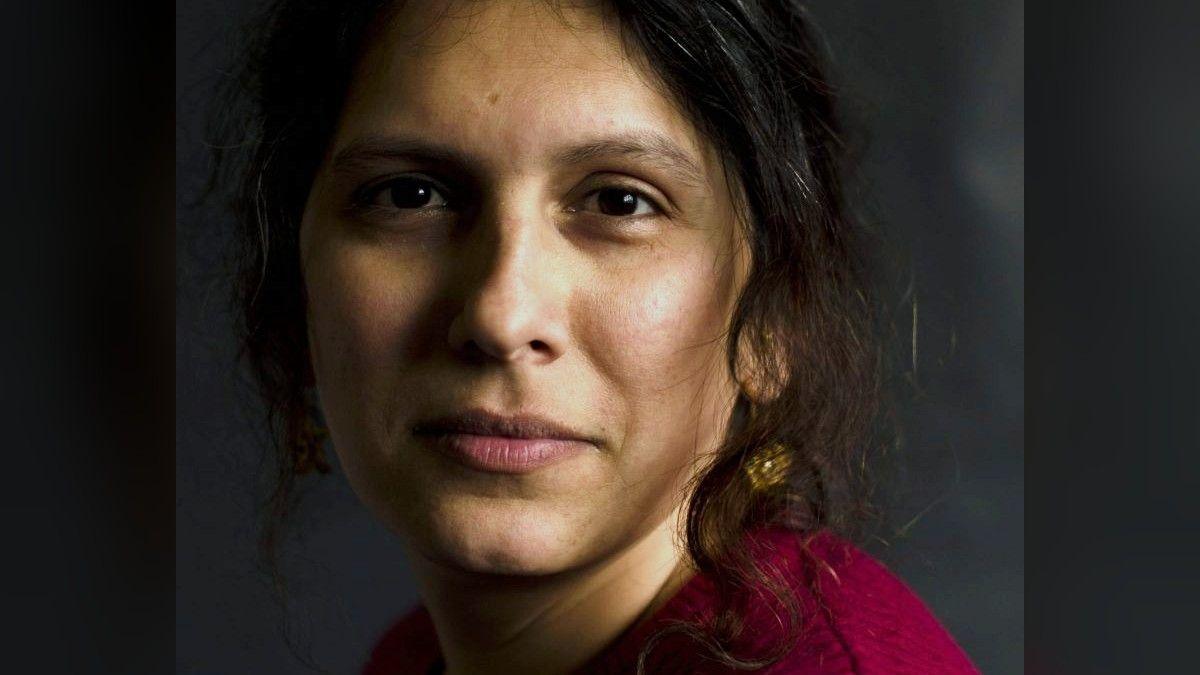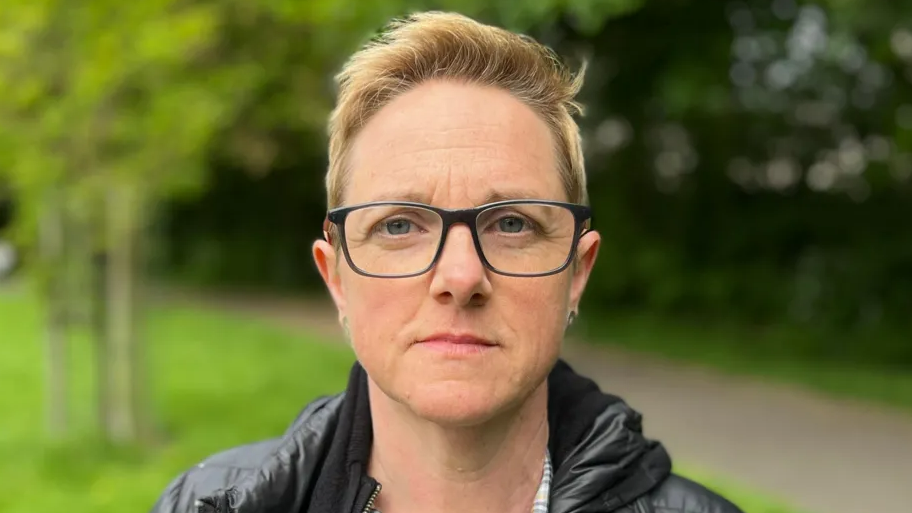Rape crisis centre CEO stands down after report into failings

Mridul Wadhwa was appointed chief executive officer of the Edinburgh centre in 2021
- Published
The chief executive of a sexual assault support service has stood down after a review found it failed to protect women-only spaces.
Mridul Wadhwa – a trans woman – resigned after a Rape Crisis Scotland report found she failed to behave professionally while head of Edinburgh Rape Crisis Centre (ERCC).
The investigation, carried out by an independent consultant, also found Ms Wadhwa “did not understand the limits of her authority” and the needs of survivors were not prioritised.
In a statement, the ERCC board said it was implementing recommendations from the review, but felt the “time was right for a change of leadership”.
Rape crisis centre failed to protect women-only spaces - report
- Published12 September 2024
Rape centre worker wins tribunal over gender-critical beliefs
- Published20 May 2024
The review was sparked after an employment tribunal found a counsellor with gender-critical views had been unfairly constructively dismissed.
Former worker Roz Adams believed that those using the service should be able to know the sex of the staff that deal with their case.
The charity has paused new referrals to the centre and said it was "extremely concerned" that women-only spaces had not been provided for 16 months.
An ERCC statement said: "Mridul has stood down from her role as CEO of ERCC. Recruitment of a new CEO will happen in due course.
"We are committed to delivering excellence while taking on board the recommendations from the independent review to ensure we place survivors voices at the heart of our strategy.
"We are in daily communication with Rape Crisis Scotland, have met their urgent demands, and are currently implementing the recommendations in the report.
"We will continue to work alongside RCS to ensure our services not only meet but exceed the National Service Standards."

Edinburgh Rape Crisis Centre said it would start the recruitment of a new CEO imminently
However, For Women Scotland - which has campaigned against changes to transgender rights - accused the board of "ignoring its own culpability".
In a statement posted on X, they said, external: "This is the very least that they can do. It seems the board are intent on ignoring their own culpability.
"It's not good enough.
"They, and Rape Crisis Scotland, are making a sacrifice. But they created the problem."
Tribunal row
Ms Adams' tribunal, which concluded in May, centred on a disciplinary process that began after she repeatedly sought clarity on how to respond to an abuse survivor who wanted to know if a support worker who identified as non-binary was a man or a woman.
Some people who do not consider themselves to have a solely male or female gender identity describe themselves as non-binary.
Ms Adams' view was that people using the centre should have a choice over who they received support from on the basis of sex, and that sex was binary and "everyone is either male or female at that level".
The tribunal found that an investigation into Ms Adams' conduct should not have been launched and “was clearly motivated by a strong belief amongst the senior management and some of the claimant’s colleagues that the claimant’s views were inherently hateful".

The review found an investigation into Roz Adams' conduct should never have happened
Ms Wadhwa was highlighted in the outcome of the case as she appeared to believe that Ms Adams was transphobic.
It said Ms Wadhwa was “the invisible hand behind everything that had taken place.”
The review into the charity, which was published on Thursday, also concluded that Ms Wadhwa “did not understand the limits on her role’s authority”.
Ms Adams has since gone on to work for Beira's Place - a women-only support service for victims of sexual violence, funded by JK Rowling.
'High quality services'
The review found the charity had experienced a number of difficulties including a restructuring of the service during the pandemic and a series of board and trustee changes.
It said that some basic systems were not robust which "did not help the organisation manage situations well".
This included a strategy "which did not put survivors first" and a failure to protect women-only spaces.
In its recommendations, the review said the Edinburgh centre should take advice from Rape Crisis Scotland on the definition of "woman" and publicise this within the service.
Women-only spaces and times "must be protected and clearly publicised", it said.
But the review also acknowledged it continued to "deliver high quality services to a significant number of people".
Survivors are still able to self-refer to the charity.
Scottish Conservative MSP Sue Webber accused the charity of "imposing a militant gender ideology" under Ms Wadhwa's leadership.
She said the organisation required a "change of ethos" rather than a change in leadership if it was to re-earn the trust of women.
She added: “While the ERCC board have been forced, by the independent review, to accept that a change of leadership is necessary, the perfunctory apology in their statement suggests they still don’t grasp the magnitude of the offence and upset they have caused."